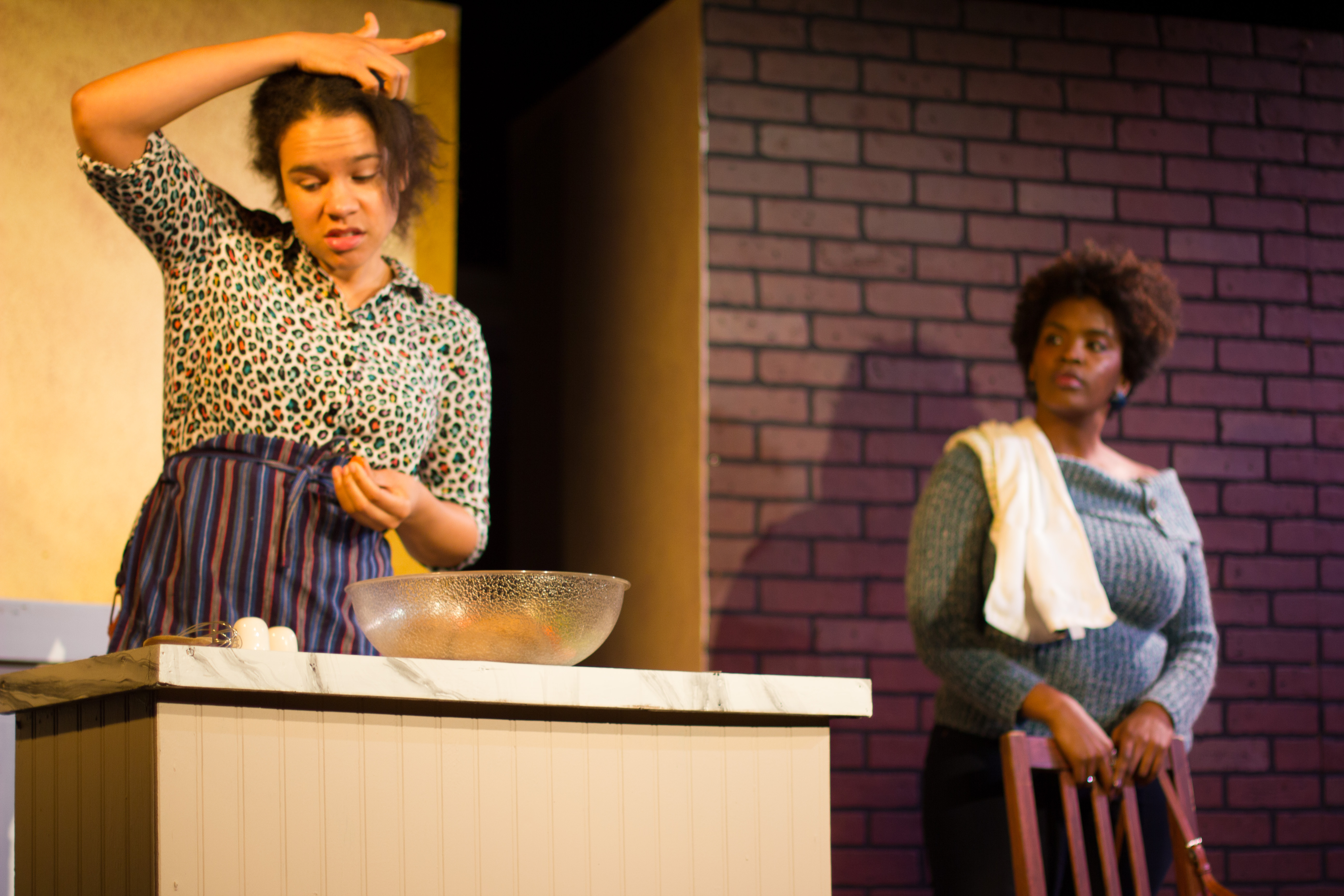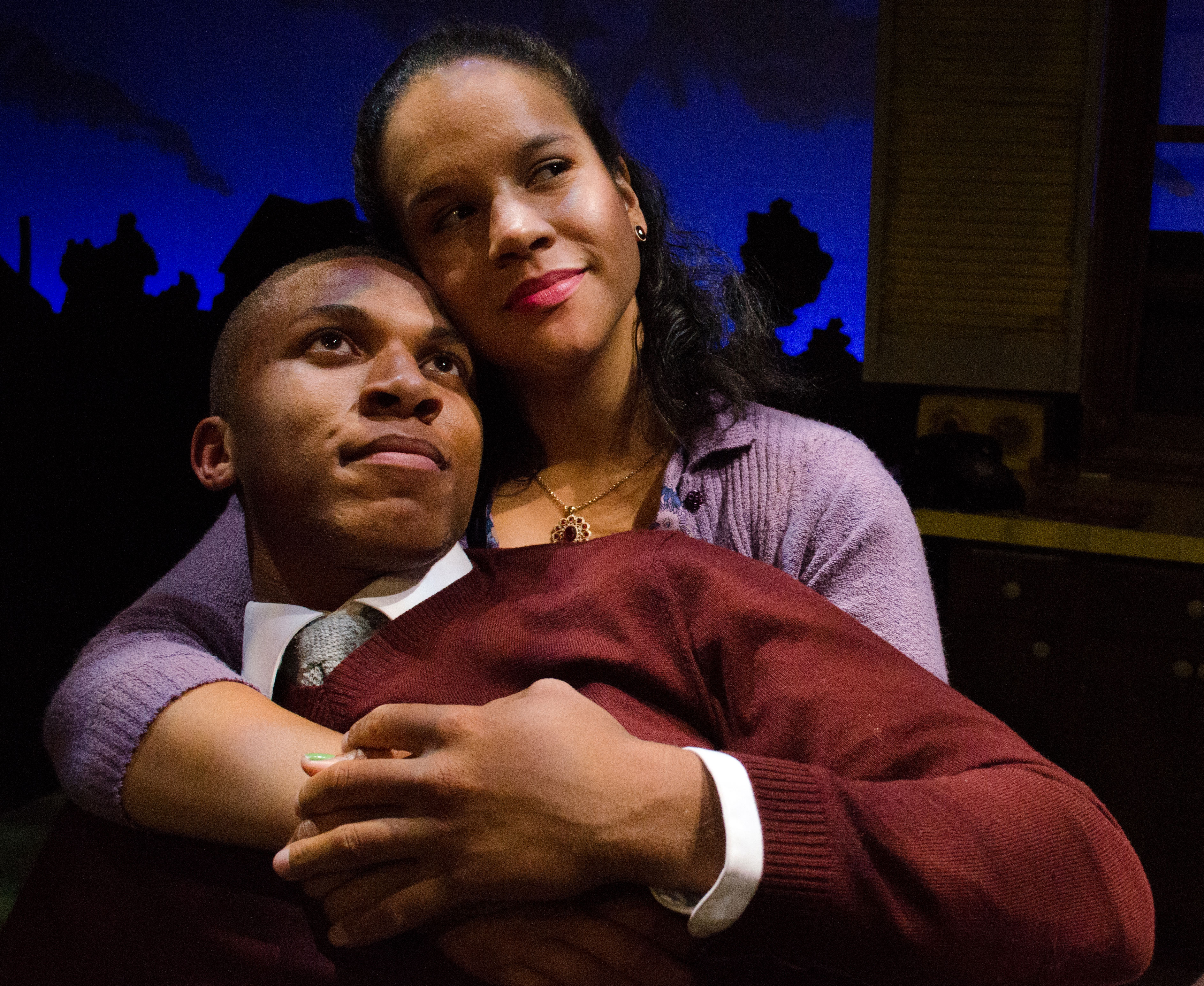Black Like Us
Annex Theatre, 1100 E. Pike St., 728-0933, annextheatre.org. $5–$20. 8 p.m. Thurs.–Sat. Ends March 1.
Did you know Dick Cheney and George W. Bush are both distantly related to Barack Obama? Fact.
But just as more than bloodlines are needed to forge kinship, it takes more than being raised under the same roof to keep a family together. Local playwright Rachel Atkins’ new drama posits that for blacks who could “pass” for white, embracing one’s black heritage once hinged on whether you might get a better offer elsewhere.
It’s a fascinating theme. In post–Civil War New Orleans, for example, the occupying U.S. Army commander issued a Reconstruction edict that brutally simplified racial categories: If you weren’t 100 percent white, you were black. Overnight, musicians of color who had played in opera houses and elite salons were tossed into the street to compete with self-taught musicians for tips and gigs. That law lit the fuse that helped create jazz.
In 1958 Seattle, where Black Like Us is set, color lines are subtler, yet still insidious, for sisters Florence (Chelsea Binta) and Maxine (Dior Davenport). Maxine is a budding civil-rights activist, but Florence has found a quicker way into the broad sunlight of zero discrimination. Because she can pass, she was mistakenly hired to work at the local department store, where she’s met a fine Italian-American gent who wants to marry her. Oh, and he has no idea she’s black.
Although we never meet the beau or the sisters’ parents, we do encounter both girls’ granddaughters several decades later. Florence’s grandkids range from the hesitant Amy (McKenna Turner) to the more contemplative Michelle (Lindsay Evans) and the bull-in-a-china-shop Sandra (Alyson Scadron Branner), who sets up a meeting with Maxine’s descendants at the “neutral ground” of a Bellevue Starbucks.
Director Jose Amador has his hands full keeping Atkins’ often unwieldy go-cart of a play in steady forward motion. She favors raw emotion over finesse (here the phrase “keeping it real” comes to mind), when a more practiced playwright might accomplish both. When Maxine’s side of the family, Tanya (Marquicia Dominguez) and Denise (Kia Pierce), reluctantly arrives, it’s explosive, awkward, and funnily, scarily credible. That Atkins then takes another long, wistful look back to 1958 makes a nice bookend, but completely deflates the drama—adding an unnecessary 45 minutes following the denouement.
A word about the stagecraft: Plaudits to John Clarke, whose interlocking stage design makes a Rubik’s Cube look elementary. Likewise, Shane Regan’s sound design is a crazy quilt of terrific soul classics, from Gil Scott-Heron’s proto-rap classic “The Revolution Will Not Be Televised” to Sly and the Family Stone’s “Family Affair” to William DeVaughn’s “Be Thankful for What Youve Got.” That Florence’s very white grandaughter Sandra has James Brown’s “Say It Loud—I’m Black and I’m Proud” as her cell ringtone: Priceless.
stage@seattleweekly.com








